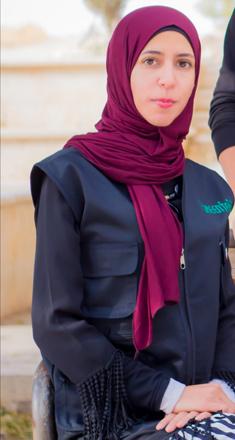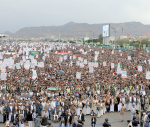You are here
Paper calls for Jordanian youth engagement in climate change policymaking
By Mays Ibrahim Mustafa - Dec 21,2022 - Last updated at Dec 21,2022
AMMAN — A policy brief issued by the United Nations Development Programme (UNDP) on December 14 called for enhancing the representation and involvement of youth as “key stakeholders” in Jordan’s climate policymaking processes.
The policy brief, titled “Youth for Climate Action: Engaging Jordanian Youth in Climate Related Policymaking”, pointed out that climate change is an “intergenerational problem” that disproportionately impacts children and youth.
“The well-being of future generations depends upon the actions we take today,” it said.
The brief further stated that “despite these concerns, young people are rarely engaged or addressed in climate action policies, and their potential as agents of change is often overlooked”.
It also indicated that the lack of youth engagement extends to the current structure of national institutions.
The National Committee on Climate Change (NCCC) is the highest policymaking body concerned with climate change, according to the brief.
However, it noted that neither the Ministry of Youth nor civil society organisations that could represent youth are on its board, which “consists of representative stakeholders with voting rights that they can exercise to ratify climate change projects”.
Hala Murad, head of the Dibeen Association for Environmental Development said that the absence of the Youth Ministry from the NCCC board is a hindrance to a “structural, sustainable and comprehensive” framework on climate change.
“Youth are the future, so it’s absolutely necessary for them to be part of the conversation and the solution,” she told The Jordan Times.
Murad also noted that a real and effective participation for youth in decision making processes must be preceded by “capacity building and awareness raising”.
“This is to ensure that youth’s involvement and climate action is guided by scientific knowledge and has a solid base capable of driving change and making a difference,” she said.
President of the Jordan Environment Union Omar Shoshan told The Jordan Times that youth “are at the forefront of our fight against climate change and they deserve a seat at the table”.
This requires encouraging youth to speak up and communicate their concerns, which should be considered in policy-making processes, he said.
The Jordan Times also spoke with young Jordanians involved in social initiatives concerned with climate action.
“We recognise that climate change requires the comprehensive involvement of all members of society, including we youth, who will deal with outcomes of today’s decisions and policies,” 25-year-old Rand Al Kushman said.
She also noted that the lack of access to scientific information and research related to climate change in Arabic is one of the challenges facing Jordanian climate activists.
Ishaq Hmoud, 20, expressed the need to strengthen channels of communication between policymakers and youth climate activists.
“We feel that we have a responsibility to drive action, but in order for our individual initiatives to have the needed impact, they must be accompanied by partnerships with decision makers,” he said.
According to the brief, 63 per cent of Jordan’s population is under the age of 30, and indicators predict that youth will continue to constitute the “dominant demographic cohort” until 2050.
“Youth can offer invaluable contributions through their experiences, life visions, and innovative ideas that help shape the climate change response,” the brief said, adding that “empowering Jordanian youth and investing in their role as policymakers is the way forward”.
Its recommendations also included strengthening youth’s relationship with public institutions as well as national and local governments, launching awareness-raising initiatives on the impacts of climate change and the human right to a sustainable environment, fostering intergenerational dialogues, removing language barriers to increase the equal access to information and enhancing the representation of youth in policy making bodies.
It also recommended equipping youth with the needed skills and training along with “reviewing national curricula and including environmental education across schools and universities”.
Related Articles
AMMAN — Jordanian youth-led green initiatives are growing in number, though more inclusion, green skills and competencies are required for a
AMMAN — A recent brief by the Jordan Strategy Forum (JSF) reported that the unemployment rates of Jordan’s youth were “particularly discoura
AMMAN — The United Nations on Wednesday announced that 100 outstanding young climate champions chosen from around the world will receiv

















